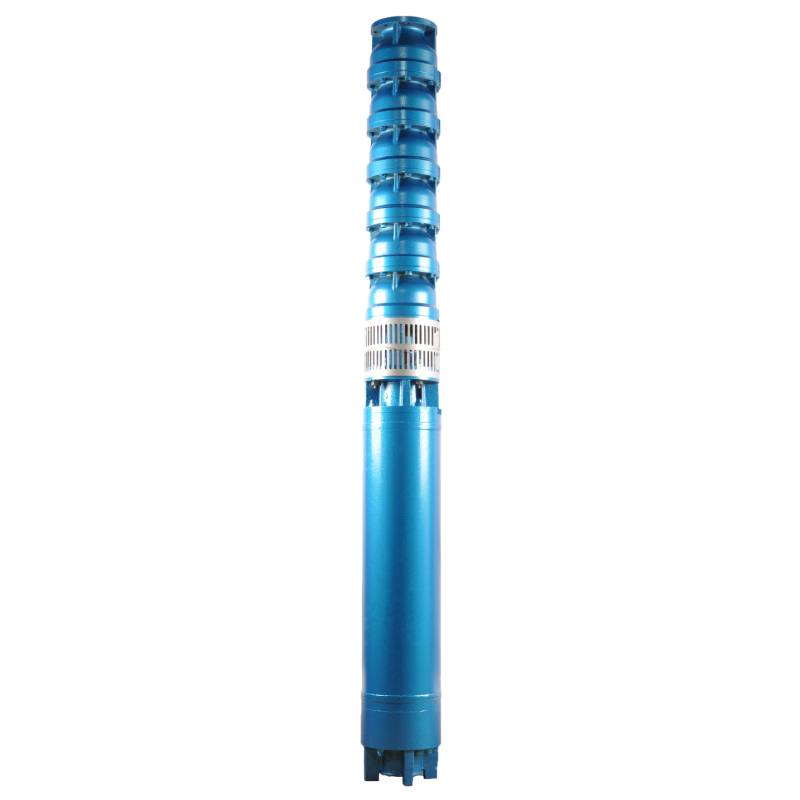Dec . 04, 2024 23:44 Back to list
deep well pump system
Understanding Deep Well Pump Systems Mechanisms, Applications, and Benefits
Deep well pump systems are essential tools in the field of water extraction, particularly in areas where surface water is scarce or contaminated. These systems are designed to lift water from depths that surpass typical pumping capabilities, utilizing various pump technologies to ensure efficient and reliable water supply. This article delves into the mechanisms, applications, and benefits of deep well pump systems.
Mechanisms of Deep Well Pump Systems
At the heart of a deep well pump system lies the pump itself, which can be categorized into different types, including submersible pumps and vertical turbine pumps. Each type serves a specific purpose based on the well depth and water requirements.
1. Submersible Pumps These pumps are designed to operate underwater and are typically encapsulated in a sealed unit. A submersible pump consists of a motor and a pump stage, which is submerged in the well. Water is drawn into the pump and pushed up through the discharge pipe to the surface. This type of system is known for its high efficiency and ability to work in deep wells, often exceeding depths of 250 feet.
2. Vertical Turbine Pumps These pumps are commonly used in agricultural, municipal, and industrial applications. They are installed vertically in the well, with a motor at the surface. Vertical turbine pumps are capable of extracting water from several hundred feet below the surface. Due to their design, they are especially efficient for moving large volumes of water.
Both pump types require a well casing, which is a structure that supports the walls of the well and prevents contaminants from entering the water supply. Additionally, a reliable power source, often provided by electricity or solar panels, is essential for the operation of these pumps.
Applications of Deep Well Pump Systems
Deep well pump systems have a wide range of applications across various sectors
- Agriculture Farmers commonly rely on deep well pumps to irrigate crops in regions where surface water is not available. These pumps ensure that the crops receive a consistent and adequate water supply, thus improving yield and efficiency.
- Municipal Water Supply Many towns and cities use deep well systems to provide potable water to residents. These systems are crucial in arid regions where surface water sources may be limited or polluted.
deep well pump system

- Industrial Applications Industries that require significant amounts of water, such as chemical processing or manufacturing, utilize deep well pumps for their water supply needs, ensuring operations run smoothly without interruption
.- Fire Protection In some cases, deep well pump systems are integrated into fire protection systems, providing a reliable source of water for firefighting operations.
Benefits of Deep Well Pump Systems
Investing in a deep well pump system comes with numerous benefits
1. Reliability Deep well pumps are designed to operate reliably over extended periods, ensuring a consistent water supply even in challenging conditions.
2. Efficiency Advanced technologies in pump design have led to energy-efficient operations, reducing energy costs associated with water extraction.
3. Longevity With proper maintenance, deep well pump systems can last for decades, offering substantial returns on investment.
4. Versatility These systems can be tailored to meet specific needs, making them applicable across different industries and sectors.
5. Sustainability By tapping into underground aquifers, deep well pump systems provide a sustainable water source, helping to preserve surface water bodies.
In conclusion, deep well pump systems play a crucial role in modern water management across various sectors. Their ability to draw water from significant depths makes them indispensable in regions where surface water is not viable. As technology advances, the efficiency and sustainability of these systems will continue to improve, ensuring a reliable water supply for future generations.
-
Submersible Water Pump: The Efficient 'Power Pioneer' of the Underwater World
NewsJul.01,2025
-
Submersible Pond Pump: The Hidden Guardian of Water Landscape Ecology
NewsJul.01,2025
-
Stainless Well Pump: A Reliable and Durable Pumping Main Force
NewsJul.01,2025
-
Stainless Steel Submersible Pump: An Efficient and Versatile Tool for Underwater Operations
NewsJul.01,2025
-
Deep Well Submersible Pump: An Efficient 'Sucker' of Groundwater Sources
NewsJul.01,2025
-
Deep Water Well Pump: An Efficient 'Sucker' of Groundwater Sources
NewsJul.01,2025
-
 Submersible Water Pump: The Efficient 'Power Pioneer' of the Underwater WorldIn the field of hydraulic equipment, the Submersible Water Pump has become the core equipment for underwater operations and water resource transportation due to its unique design and excellent performance.Detail
Submersible Water Pump: The Efficient 'Power Pioneer' of the Underwater WorldIn the field of hydraulic equipment, the Submersible Water Pump has become the core equipment for underwater operations and water resource transportation due to its unique design and excellent performance.Detail -
 Submersible Pond Pump: The Hidden Guardian of Water Landscape EcologyIn courtyard landscapes, ecological ponds, and even small-scale water conservancy projects, there is a silent yet indispensable equipment - the Submersible Pond Pump.Detail
Submersible Pond Pump: The Hidden Guardian of Water Landscape EcologyIn courtyard landscapes, ecological ponds, and even small-scale water conservancy projects, there is a silent yet indispensable equipment - the Submersible Pond Pump.Detail -
 Stainless Well Pump: A Reliable and Durable Pumping Main ForceIn the field of water resource transportation, Stainless Well Pump has become the core equipment for various pumping scenarios with its excellent performance and reliable quality.Detail
Stainless Well Pump: A Reliable and Durable Pumping Main ForceIn the field of water resource transportation, Stainless Well Pump has become the core equipment for various pumping scenarios with its excellent performance and reliable quality.Detail
